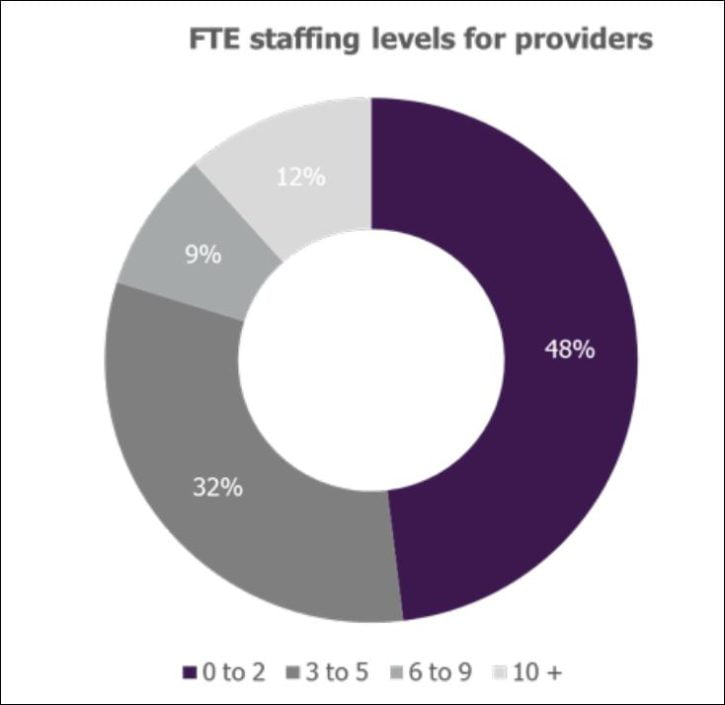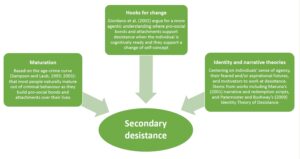The government’s privatisation of the probation service, Transforming Rehabilitation, was supposed to ensure that voluntary and third sector organisations played a central role in providing specialist support to offenders.
We have known that this has not been the case in practice for some time now. Today’s (17 April 2018) HMI Probation’s thematic report on probation supply chains confirms that this is the case.
The report comes to a number of damning conclusions:
- The National Probation Service (NPS), responsible for high-risk offenders, “is not buying services from CRCs to anywhere near the extent expected” under TR – for reasons including objecting to the price and doubting the quality.
- All CRC owners inspected were concerned about the financial instability and viability of their own contracts with the MoJ. Their own lack of stability was driving their relationship with principal and smaller sub-contractors in the third sector and most were looking for further efficiencies and cutbacks. Supply chains delivering services within the community were generally small scale, and non-existent in some local areas. A noticeable proportion of pre-2014 contracts with third sector organisations had been discontinued.
- The Ministry of Justice’s template contract for CRCs – ‘Industry Standard Partnering Agreements’ (ISPA) – was burdensome, and disproportionate to the value of most of the third sector services being contracted.
The third sector is less involved than ever in probation services, despite its best efforts; yet, many under probation supervision need the sector’s specialist help, to turn their lives around.
Dame Glenys Stacey, Chief Inspector of Probation Tweet
Key findings
The principal findings from the inspectors’ report are set out below.
Implementation
- Supply chains have not been established at the scale anticipated by the MoJ when setting up TR. Most CRCs are now looking to their supply chain to find further efficiencies to shore up their own financial position, and so those supply chains that do exist look set to shrink further.
- CRC intentions (as expressed in their bids) for extensive voluntary sector supply chains were not then hard wired into CRC contracts. Instead, government policy to allow CRCs freedom of design led to individualised ‘black box’ contracts which do not require CRCs to commission specialist services from the third sector or from others.
- CRC financial incentives do little to guard against the unequal provision of services across the country, or to encourage growth.
Are specialist services being provided?
- Where supply chains exist, they are small in scale, and the scope of services provided by each Tier 2 provider is usually narrow. In the eight CRC local delivery unit areas inspected for this report, there was an average of three subcontracted Tier 2 providers in each locality, with virtually no Tier 3 providers. Tier 2 providers generally included one providing specialist services to women.
- The national picture showed an average of six subcontracted services, in scope for our inspection, per CRC. It was noted that there was more than double this amount in Cheshire and Greater Manchester CRC. There was unequal provision across the country, and in some local areas there were no Tier 2 providers.
- While inspectors saw some valuable holistic support being provided, there were few examples of true innovation.
The small scale nature of provision was underlined by the fact that nearly half of the providers working with CRCs were employing under two members of staff:

Is the NPS buying services?
- The NPS is not buying services from CRCs to anywhere near the extent expected, for many reasons. Some NPS local delivery areas had made no purchases. Inspectors found little evidence of CRCs conducting a periodic, robust user needs analysis, first of all. They are not required to do so, but without it CRCs cannot be sure to commission the right services in the right places. Probation trusts conducted such analyses routinely.
- NPS divisions are reliant on CRCs setting out (in a rate card) the price and range of services they have on offer to the NPS. Some CRCs took many months to publish agreed rate cards and service directories. Inspectors found that many in NPS divisions and even within CRCs were unaware of the services on offer.
- Both NPS and CRC staff are frustrated by the rate card process and the way it inevitably constrains how services can be commissioned.These frustrations, and the (often) limited range of services on offer, lead to the pursuit of alternative options, or else apathy among responsible officers in the NPS and in CRCs.
- Finally, we have found some NPS staff and leaders reluctant to purchase services from CRCs because of concerns about the quality of services to be provided, or whether they represent value for money, or because of an instinctive reluctance to pay. In addition, there is an enduring cultural dimension: professional probation staff do not see themselves as purchasers, and most do not want to be.
Quality of provision
- Inspectors found that the quality of services was variable, but reasonable overall. Tier 2 providers gave due consideration to meeting specific individual needs, and took appropriate action on matters relating to the risk of serious harm to others.
- Where probation workers had made referrals to Tier 2 providers, the referrals were appropriate. However, CRCs and Tier 2 providers do not work in a sufficiently integrated way, case by case.
- Many Tier 2 providers are doing more for individuals than required by their Tier 2 contracts, so as to make a difference to people’s lives and life chances.
Recommendations
The report makes a number of recommendations. Perhaps the three most important ones are:
The MoJ should:
- ensure the continued availability of sufficient specialist services locally, through stewardship of those third-sector organisations and services currently available and/or in other ways.
- produce a national framework that promotes local joint commissioning arrangements to meet the needs of service users and enables the better targeting of resources.
Her Majesty’s Prison and Probation service should reappraise the probation delivery model, to enable more effective commissioning of specialist and innovative services. In particular:
- review whether the rate card mechanism is fit for purpose;
- ensure that accurate data is available to determine the needs of service users subject to probation intervention, and is used to inform both strategic decision making and contract management; and
- hold CRCs to account regarding their contractual obligations to develop and deliver services of sufficient quality and meet service user needs.









One Response
Well, well, there’s a surprise……